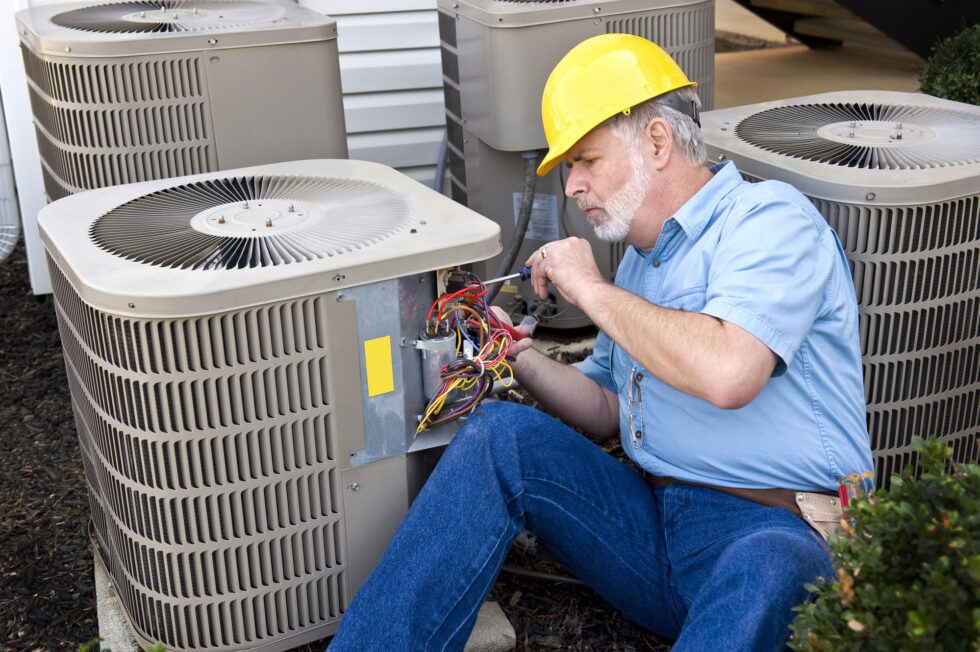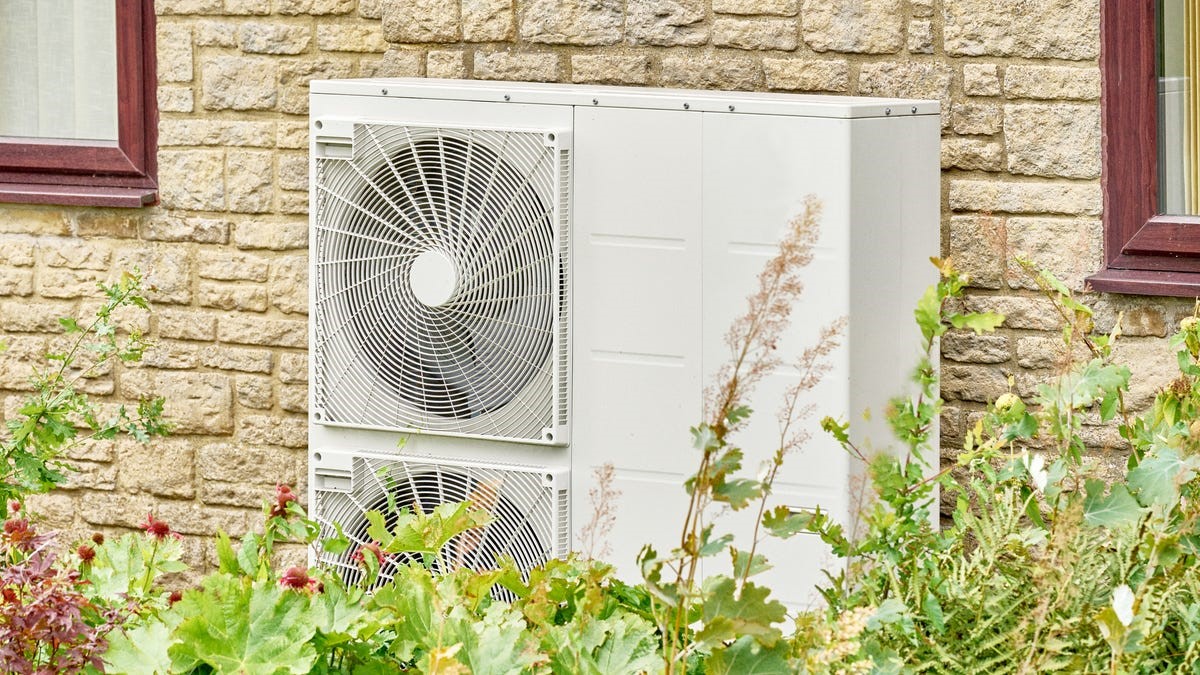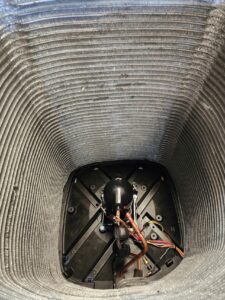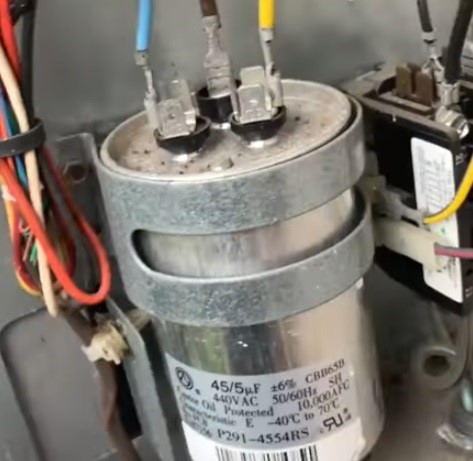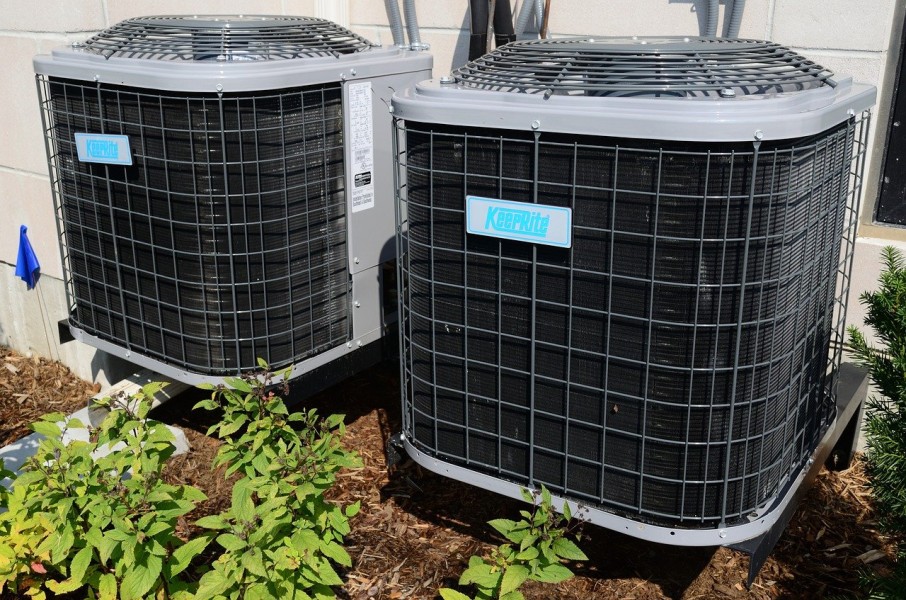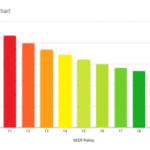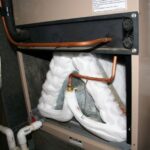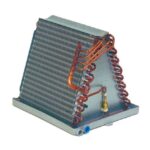The AC capacitor stores electricity and delivers powerful bursts of it to the air conditioner’s motors, providing the kickstart needed to initiate the cooling cycle efficiently. It helps start and run the motors effectively, ensuring your AC system runs smoothly.
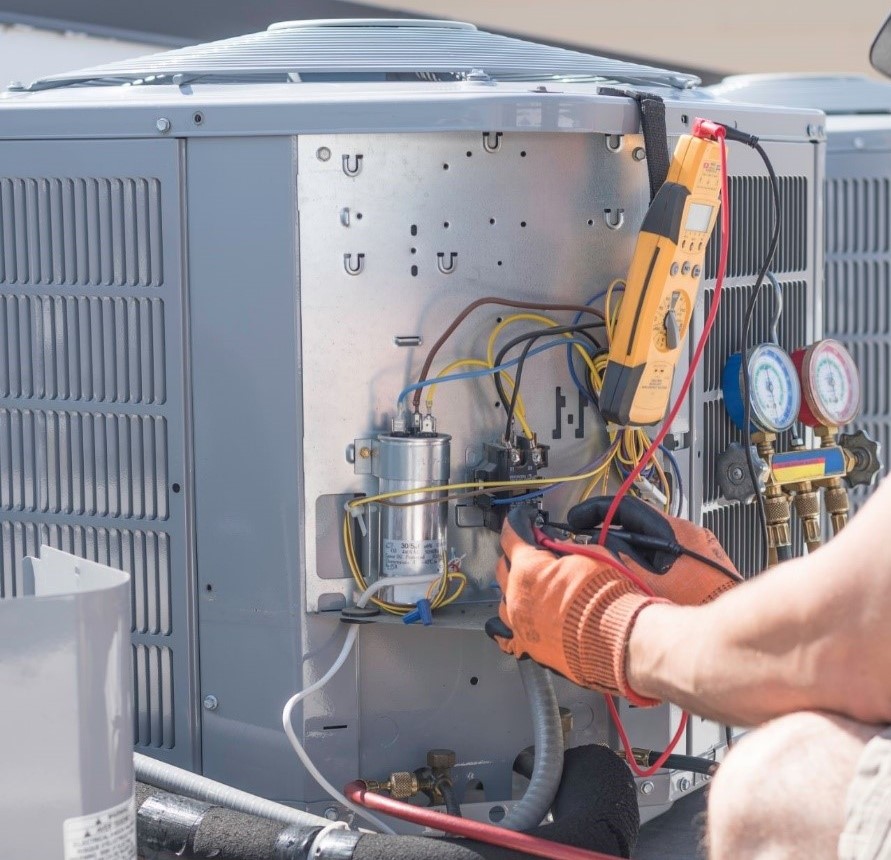
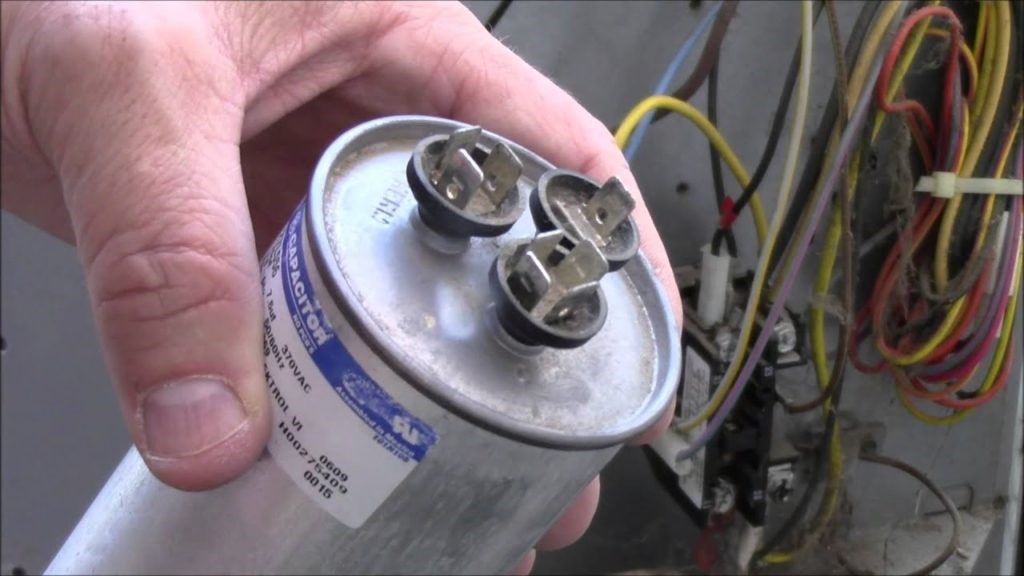
Specifically, there are two types of capacitors used in air conditioning systems:
- Start Capacitor: The start capacitor provides an extra electrical boost to the compressor and/or fan motor when the air conditioner is turned on. It helps the motor overcome the initial resistance required to get it running. Once the motor is up to speed, the start capacitor is no longer needed. It is typically used in single-phase AC units.
- Run Capacitor: The run capacitor is responsible for maintaining a consistent and steady electrical charge to keep the motor running efficiently. It helps create a phase shift in the motor’s winding, which is crucial for the motor’s proper operation and for maintaining a consistent flow of air.
In summary, capacitors in air conditioners help start and run the motors efficiently. They store and release electrical energy as needed to maintain the desired temperature within your home. If a capacitor fails, the motor may not start, or it may not run efficiently, leading to various issues with your air conditioning system, such as reduced cooling capacity, increased power consumption, or even a complete system breakdown. When a capacitor fails, it often needs to be replaced to restore the air conditioner’s proper functioning.

